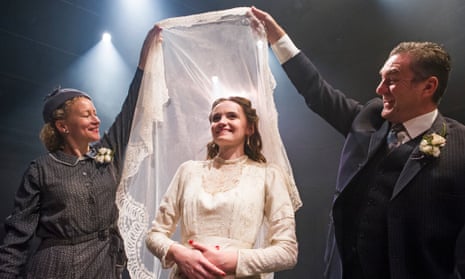Follow-ups are always difficult. Sharman Macdonald scored a big hit with her first play, When I Was a Girl I Used to Scream and Shout, but this piece, originally seen at the National Theatre in 1988, never achieved comparable success. On a rare revival it turns out to be a quietly haunting play that reveals a lot about the oppressiveness of family life and inherited sexual attitudes in wartime Scotland.
Macdonald’s heroine, Isla, is a young, working-class woman who is savvy, strong-minded and, like her dad, a bit of a drinker. Her misfortune is to run into Mackenzie, a naval petty officer and duplicitous romantic who instantly proposes to her. With some skill, Macdonald shows how Isla becomes a victim of traditional, patriarchal views: her father tells her that a woman gains position and social standing through marriage, while her mother argues that, even in times of trouble, “a woman has to cleave to a man”.
The use of a big second-act revelation to expose the folly of such antediluvian attitudes strikes me as old-fashioned for such a deliberately non-linear play. But Macdonald captures well the cramping respectability of Scottish working-class life, the resort to religion in times of crisis and the love of country that underlies everything.
Eleanor Rhode’s production, jointly presented by Snapdragon and the Orange Tree, is strong on atmosphere. Abigail Lawrie, who made a big impression as Krystal in the BBC adaptation of JK Rowling’s The Casual Vacancy, offers a fascinating blend of defiance and melancholy; Lorraine Pilkington and Steve Nicolson are very good as the deeply protective but morally flawed parents; and Mark Edel-Hunt just about convinces us that the maudlin, self-pitying Mackenzie has enough charm to woo a strong spirit like Isla.
Even when it meanders, the play has a measure of truth.

Comments (…)
Sign in or create your Guardian account to join the discussion